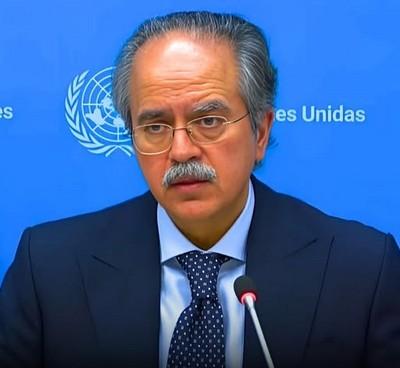
Ambassador Asim Iftikhar Ahmad urges greater fiscal support for clean energy transition at UN Forum
Celina Ali
Islamabad: United Nations: Reaffirming its commitment to the global clean energy agenda, Pakistan this week called for increased international cooperation and financial support to help developing countries achieve Sustainable Development Goal 7 (SDG 7), which seeks to ensure access to affordable and clean energy for all.
At the United Nations High-level Political Forum (HLPF) held in New York, Ambassador Asim Iftikhar Ahmad, Pakistan’s Permanent Representative to the UN, stressed that nations facing a debt crisis must be given adequate fiscal space to meet the urgent and exceptional needs of their populations, particularly in the context of energy transition.
Speaking at a session reviewing progress on SDG 7, Ambassador Ahmad described Pakistan as a country that exemplifies both the urgency and potential of the global energy transition. Highlighting national challenges and ambitions, he revealed that approximately 40 million Pakistanis still lack access to electricity as of 2024.
Nevertheless, Pakistan has set an ambitious target of achieving 60% renewable electricity by 2030, including the addition of 13 gigawatts of new hydropower and continued reliance on nuclear power for stable, low-carbon energy.
The envoy emphasized the country’s strides in solar energy, noting a “silent solar revolution” driven by affordable technology, low import tariffs, and net-metering incentives. By early 2025, solar was estimated to contribute around 25% of Pakistan’s utility electricity generation.
Despite this progress, Ambassador Ahmad warned that Pakistan’s limited fiscal capacity hampers its ability to meet growing energy needs. He stated that the country will require more than \$100 billion in clean energy investment by 2030 to meet its transition goals.
He further highlighted the global financing gap, noting that while the world must invest over \$4.3 trillion annually through 2030 to achieve energy and climate targets, public clean energy financing to developing countries remains grossly insufficient — totaling just \$21.6 billion, 83% of which comes in the form of debt. Moreover, these investments disproportionately favour developed and mature markets.
Ambassador Ahmad underscored the critical role of international cooperation and private capital in addressing this imbalance. He called for enhanced institutional capacity in developing countries to structure bankable projects and for expanded mechanisms to de-risk clean energy investments.
He also pointed to the importance of energy solutions with multiple benefits, citing the 2022 floods in Pakistan. In response, solar kits distributed with UNDP support to over 2,200 flood-affected households not only restored electricity access but also improved mobility, health, and climate resilience.
As a co-chair of the Group of Friends of Sustainable Energy, Pakistan remains firmly committed to aligning its clean energy efforts with both national development goals and the broader global agenda.
